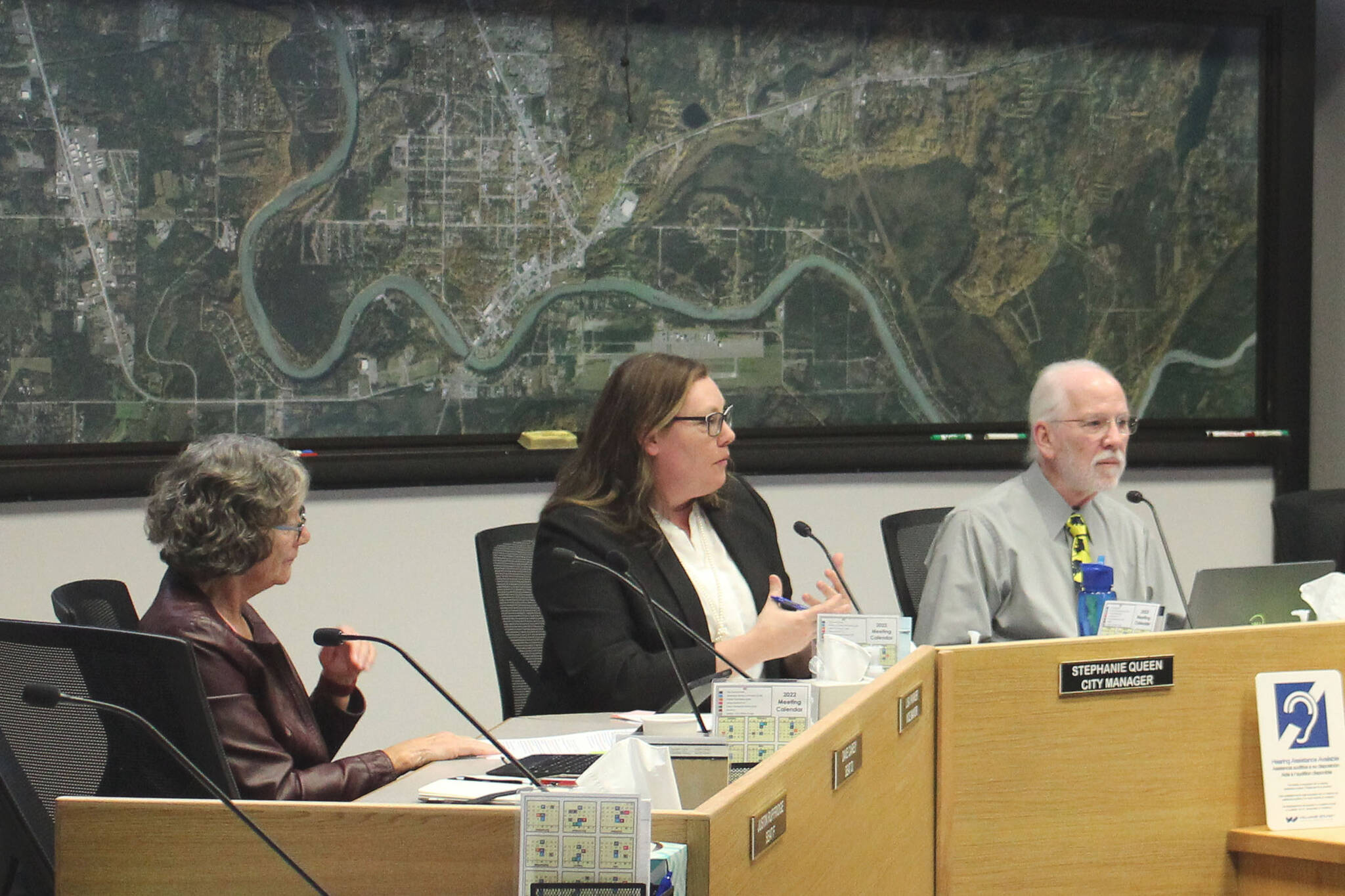Soldotna City Council members gave city administration the green light to start tackling trees infested with spruce bark beetles independently of federal grant money that’s been delayed.
The city applied in January 2020 for funds needed to remove beetle-killed trees and to conduct fire hazard mitigation work, according a resolution passed by the council Wednesday. That application, submitted to the federal Hazard Mitigation Grant Program through Alaska’s Division of Homeland Security and Emergency Management, described about $300,000 worth of proposed work across more than 375 acres of city land citing the wildfire risk of infected trees.
Soldotna City Manager Stephanie Queen said the city met with state employees who have helped facilitate the funds, which originate within the Federal Emergency Management Agency, to emphasize the urgency of the city’s infestation. As the city looks to open its campgrounds for the summer, however, it does not appear that those funds will be available in time.
“Though the original grant was to deal with wildfire mitigation, now, we’ve got a real concern about the proximity of some of these trees to our campgrounds (and) our trails,” Queen said.
While Soldotna has waited for updates on the grant money, the city’s infestation has become worse. Sites identified in the legislation as being of particular concern include Centennial Campground, Swiftwater Campground, Soldotna Memorial Park, Aspen Park, Three Friends Dog Park and Parker Park.
“Our issue right now is gravity,” Soldotna Parks and Recreation Director Andrew Carmichael told council members Wednesday. “It’s not fire, it’s not green, it’s not brown. It’s gravity. We’ve got trees falling. … We used to have the occasional call after a windstorm and now we have them rampant.”
Council members on Wednesday authorized Queen to go out to bid for tree removal efforts, with the understanding that alternative grant opportunities will be pursued. If alternative funds cannot be secured, city administration plans to seek approval for the use of American Rescue Plan Act money for the project.
City staff were “advised” by state staff that if mitigation work begins before the grant is formally executed, that work would not be eligible for reimbursement through the program and it could put the city’s existing application at risk.
Some sites affected by spruce beetles, Carmichael wrote in an April 5 memo to council members, can be addressed using small contractors and city staff. Other areas, such as Centennial and Swiftwater campgrounds, will need a “substantial contract and advanced equipment capabilities” in order for them to open safely for the summer, he wrote.
“The time is now to act to remove hazardous trees wherever we can,” Carmichael wrote.
Carmichael estimates that there are 900 trees that need to come down between Centennial and Swiftwater campgrounds, which could cost “upwards of $180,000.” According to “conservative” estimates, the work would cost around $130,000 — it can cost up to $200 per tree to fully fell and remove it from a site, Carmichael wrote.
In all, the City of Soldotna received just over $1 million in ARPA funds. The council approved the use of up to $150,000 of that money for grant consulting services, but the money has otherwise not been used.
“I think this is a wise use of those funds, to essentially back up our efforts to seek other funds and essentially stretch those dollars out,” said council member Justin Ruffridge of the potential use of ARPA funds for beetle kill mitigation
Soldotna Mayor Paul Whitney criticized “the bureaucracy” delaying the grant monies.
“I hate to see the City of Soldotna be penalized by FEMA, for moving ahead on a safety issue,” Whitney said. “You know, I guess the bureaucracy needs to understand that a tree doesn’t wait for them.”
As of 2020, more than 150,000 acres of forest had been impacted by spruce bark beetle infection on the Kenai Peninsula, including about 21,000 acres of forested land between Cooper Landing, Kenai and Soldotna, according to the Kenai Peninsula Borough.
Reach reporter Ashlyn O’Hara at ashlyn.ohara@peninsulaclarion.com

